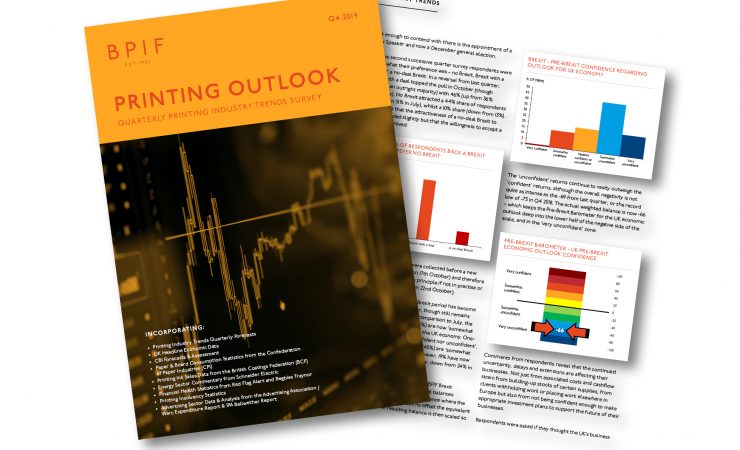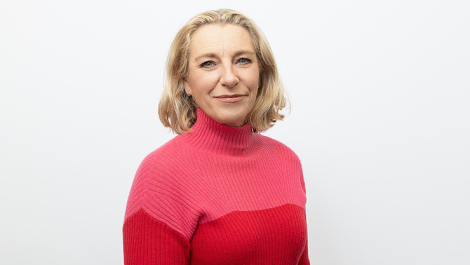Figures from the BPIF’s quarterly Printing Outlook report for the final quarter of 2019 show that although it was the worst fourth quarter for seven years, performance marginally exceeded expectations and forecasts for Q1 2020 are on the whole better.
According to the survey, 34% of printers increased output in quarter, driven in part by election-related activity, while 38% held steady and 28% saw a decline, giving a net balance of +6, just above than the +5 recorded for the previous quarter (itself the worst Q3 for three years), and better than the +2 predicted for the period. After wildly inaccurate forecasts for Q2 and Q3 2018, the Q4 one was closer to the mark and the expectation for the first quarter of 2020 is growth in output for 39%, no change for 37% and 24% expecting a reduction, a net balance of +15, nearly as high as for the same quarter last year.
The Conservative election victory has removed – or at least postponed – some immediate concerns related to Brexit, which has dropped from being the major concern to second place, cited as a top concern by 38%, well behind the persistent worries over competitor pricing (61%). Access to skilled labour was third at 26%, followed by late payment (23%), though the labour issue may now rise as a result of the government’s recent announcement about its proposed post-Brexit immigration restrictions which could potentially affect seasonal and other labour requirements for printers. Pricing worries for paper and board have taken a back seat for now, with only 17% seeing them as the most pressing issue.
The BPIF’s ‘Brexit barometer’, introduced three years ago before the Article 50 notification was given, records a net negative score of -3 but this is a dramatic improvement on the previous quarter when it was at -50. Key concerns here are maintaining a secure supply chain (75%), followed more distantly by general cost inflation (40%) and non-tariff barriers (39%). Again, recent government announcements seem unlikely to assuage worries about the latter, given the Prime Minister’s insistence on diverging from EU rules.
BPIF economist Kyle Jardine commented, ‘So far sentiment surrounding Brexit has been largely negative and we have largely reported on concerns rather than opportunities. This focus has helped highlight concerns and issues and has fed into lobbying and representation activities – and increasing awareness within the industry. However, as we now move into the transition period and Brexit sentiment becomes less negative, and perhaps positive, we will be having a closer look at the opportunities that could become available.’



